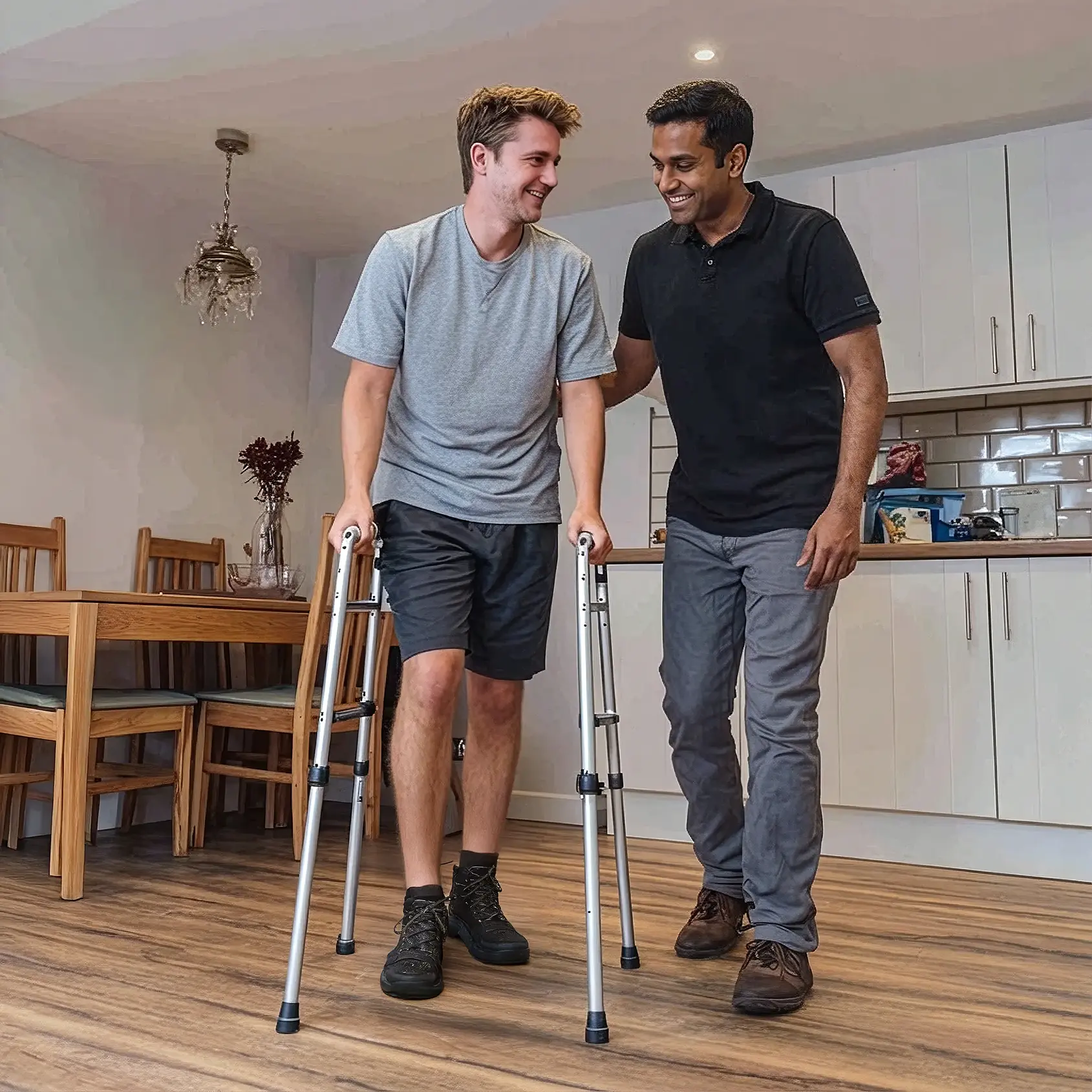Careers
15 Sept 2025
AI Saved My Colleague from Life-Changing Surgery
The NHS’s 10-Year Plan Doesn’t Go Nearly Far Enough

Written by Stephen Pattrick, CEO and Co-Founder, Newcross Healthcare
A few weeks ago, a senior colleague of mine at Newcross Healthcare was rushed to hospital during a severe flare-up of a long-standing autoimmune condition. Over just ten days, he lost more than 12 kilograms. Each day, compassionate and experienced NHS clinicians told him that life-altering surgery to remove his colon wasn’t just likely—it was necessary.
But he walked out of that hospital intact. Not because of a miracle. Not because of a medical breakthrough. Because of AI.
Not AI as novelty. Not AI as a passive note-taker. But as an active, intelligent partner in his own care.
This isn’t a story from the future. It happened last month. And it offers a glimpse into how AI can—and should—be used to support patients, relieve pressure on clinical teams, and transform outcomes across the UK. Yet the NHS’s current 10-year plan for AI adoption barely scratches the surface of what’s possible.
The Human-AI Partnership That Changed a Life
Long before he fell ill, my colleague had been training an AI assistant with months of personal data—nutrition, exercise, symptoms, recovery markers. So, when the crisis came, he had something the NHS didn’t: a contextual record.
Where the NHS saw a snapshot, the AI saw a timeline.
He used it to review and optimise nutritional plans, flag missing electrolytes, and suggest whole-food alternatives. It spotted risks in real time—ones no overstretched consultant or pharmacist could reasonably be expected to catch in a busy hospital setting.
One of the errors it caught was a sleeping tablet prescribed at twice the recommended dose—potentially dangerous given his condition. Another error was a steroid being administered via slow drip rather than direct injection, risking diminished efficacy.
Neither mistake was intentional. But both could have had serious consequences. And both were quietly corrected—because of a tool that had his back.
More importantly, the AI guided him through evidence-based alternatives to surgery. With that research in hand, he was able to initiate a clinical discussion that ultimately led to a change in treatment—and spared him from invasive, irreversible surgery.
This wasn’t about challenging doctors. It was about empowering a vulnerable patient to become an informed participant in their care. AI wasn’t replacing the NHS—it was complementing it. Like a second set of eyes. A coach. A reasoning partner.
Why the NHS AI Vision Is Too Small
The NHS’s 10-year plan mentions using AI to reduce administrative burden and assist in diagnostics. Those are worthwhile ambitions—but they barely scratch the surface.
If this story had followed the usual path, we’d now be talking about a permanent life change and a long recovery. Instead, we’re witnessing accelerated healing, restored agency, and a lighter load on an overstretched system.
This is what AI can do—not just record what happens, but shape what could happen.
And yet, we continue to relegate it to a clerical role.
If AI is only allowed to document decline, it will never help us prevent it. But if we give it the mandate—and the ethical and clinical frameworks—to reason, model, and advise, we can deliver earlier interventions, personalised care, and better results.
This Isn’t a Thought Experiment. It’s a Wake-Up Call.
There are 1.5 million NHS workers giving everything they’ve got, every day. AI isn’t here to replace them. But it can extend them. It can help them do more, see more, and catch what would otherwise be missed.
Let me be clear: AI didn’t replace the skill or compassion of the NHS team. But it amplified it—in personal, precise, and deeply meaningful ways.
If we continue with narrow, cautious AI adoption, we will miss the biggest opportunity of our generation. Not in theory. In lives.
This experience has validated my long-held opinion that AI and technology will improve patient outcomes. We don’t need to wait – the technology is available now and the case is evident.
Our investment and board seat at Fountain Life reconfirms our intention to be at the leading edge of diagnostic innovation and we look forward to a time that the UK clearly embraces the opportunities for everyone to become the CEO of their own health and wellbeing.
We owe it to patients, to clinicians, and to the NHS itself to think bigger.

What's the Difference Between a Staffing Agency and a Regulated Care Provider?
And why it matters more than you might think

Why work in healthcare?
7 reasons it could be the right move

Dignity in Action
Why Respect Matters Most in Home Care












